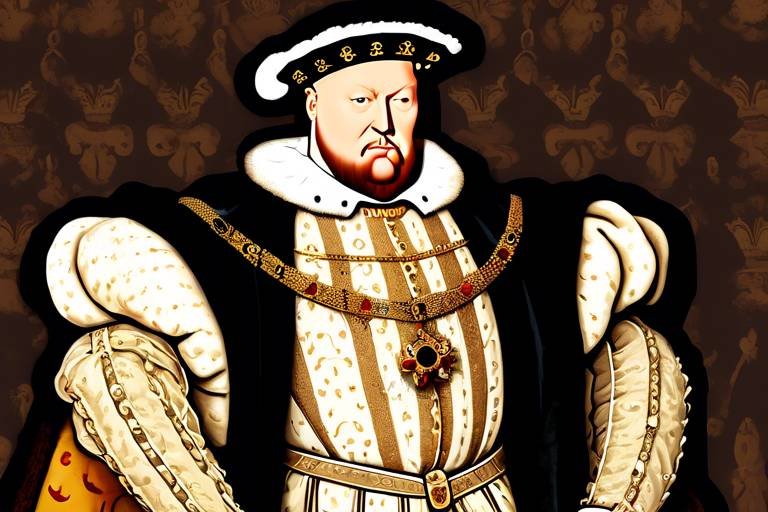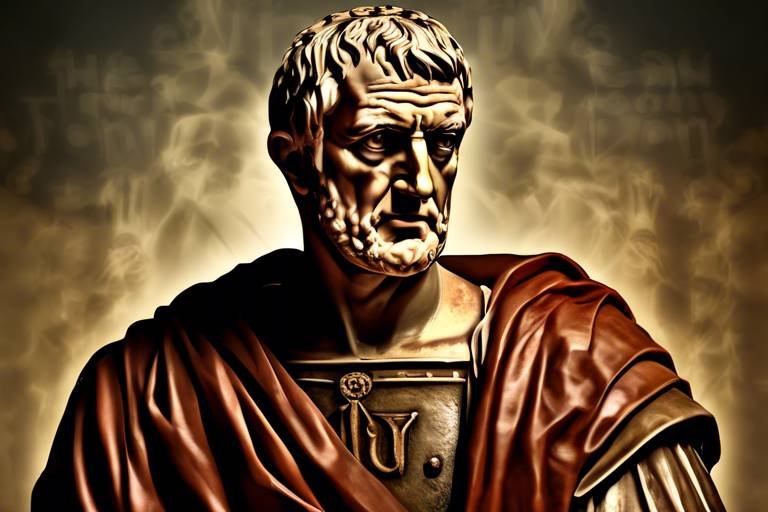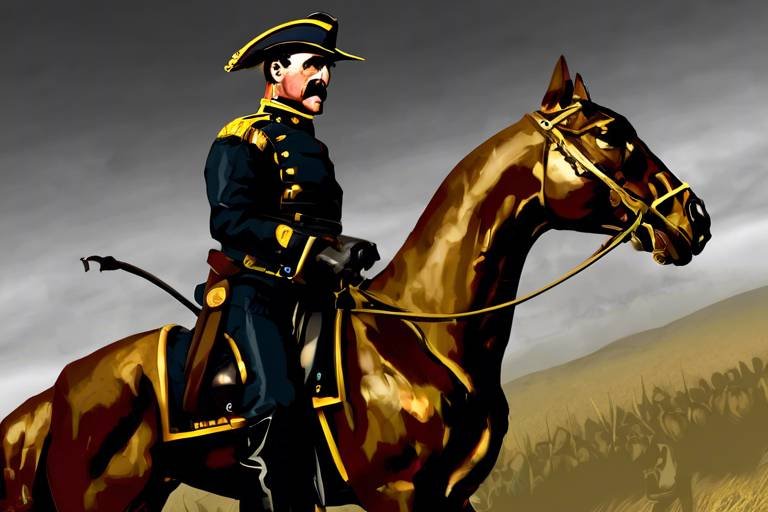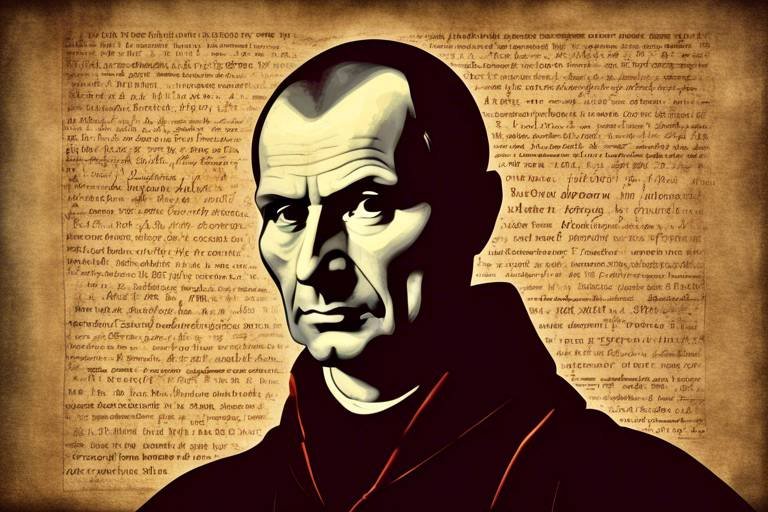Cantor: The Mathematician of Infinity
Georg Cantor, known as the Mathematician of Infinity, was a trailblazing figure in the world of mathematics who reshaped our understanding of infinity and set theory. Despite facing immense resistance and criticism in his time, Cantor's work continues to inspire and challenge mathematicians to this day.

Early Life and Education
Exploring the life and work of Georg Cantor, the pioneering mathematician who revolutionized our understanding of infinity and set theory, despite facing significant opposition and criticism during his time.
Delving into Cantor's upbringing, education, and early influences that shaped his interest in mathematics and laid the foundation for his groundbreaking contributions to the field.
Georg Cantor was born on March 3, 1845, in Saint Petersburg, Russia. His family moved to Germany when he was eleven years old, where he showed exceptional aptitude for mathematics from a young age. Cantor received his education at the University of Berlin, where he studied under renowned mathematicians like Leopold Kronecker and Karl Weierstrass.
During his formative years, Cantor was deeply influenced by the works of mathematicians such as Euler, Gauss, and Riemann. Their groundbreaking discoveries in mathematics inspired Cantor to pursue his own path of exploration and innovation in the field.
Despite facing challenges and setbacks, including struggles with mental health issues, Cantor persevered in his academic pursuits and eventually made significant contributions that would shape the future of mathematics.
His early education and exposure to diverse mathematical ideas played a crucial role in igniting Cantor's passion for exploring the infinite and pushing the boundaries of mathematical understanding.
1. What is set theory, and why is it important in mathematics?
2. How did Cantor's work on infinity challenge traditional mathematical beliefs?
3. What is the significance of the continuum hypothesis in modern mathematics?
4. How did Cantor's upbringing influence his career as a mathematician?

Development of Set Theory
Exploring the life and work of Georg Cantor, the pioneering mathematician who revolutionized our understanding of infinity and set theory, despite facing significant opposition and criticism during his time.
Georg Cantor's development of set theory marked a monumental shift in mathematical thinking, challenging conventional beliefs and paving the way for new horizons in the realm of infinity. Cantor's exploration of sets and their properties led to the introduction of transfinite numbers, a concept that shattered traditional boundaries of mathematics. Through his innovative approach, Cantor demonstrated that infinity was not a singular entity but rather a continuum of different sizes, each with its own cardinality. This groundbreaking idea not only expanded the understanding of infinity but also laid the foundation for a more nuanced comprehension of mathematical structures.

Introduction to Transfinite Numbers
Georg Cantor's introduction of transfinite numbers marked a monumental shift in mathematical thinking, challenging the conventional boundaries of infinity. By assigning cardinal numbers to infinite sets, Cantor unveiled a mesmerizing world where infinities come in different sizes, countable and uncountable. Imagine a realm where infinity is not just a single entity but a diverse spectrum, each with its own distinct characteristics and properties. Cantor's bold exploration into these uncharted territories paved the way for a profound redefinition of the infinite, reshaping the very fabric of mathematics.

Continuum Hypothesis
The is a fundamental conjecture in mathematics formulated by Georg Cantor, the visionary mathematician known for his work on infinity and set theory. This hypothesis proposes that there are no sets with cardinality strictly between that of the integers and real numbers. In simpler terms, it suggests that the size of the set of real numbers is the smallest uncountable cardinality. Cantor's exploration of the continuum hypothesis led to significant debates and discussions within the mathematical community, as it challenged conventional notions of infinity and introduced a new perspective on the nature of mathematical sets.

Controversies and Criticisms
Georg Cantor's groundbreaking work on infinity and set theory was met with significant controversies and criticisms during his time, particularly from his contemporaries in the mathematical community. One of the most notable opponents of Cantor's ideas was Leopold Kronecker, a prominent mathematician who vehemently rejected Cantor's revolutionary concepts.
Kronecker, known for his finitistic approach to mathematics, believed that Cantor's exploration of infinite sets and transfinite numbers strayed too far from the fundamental principles of mathematics. He argued that Cantor's work on infinity was misguided and that it undermined the rigor and validity of mathematical reasoning.
The clash between Cantor and Kronecker escalated into a personal and professional feud, with Kronecker publicly denouncing Cantor's theories and attempting to discredit his mathematical achievements. Despite Cantor's attempts to engage in constructive dialogue and defend his ideas, Kronecker remained steadfast in his opposition, creating a rift within the mathematical community.
Furthermore, other mathematicians of Cantor's time also raised concerns about the implications of his set theory, particularly the concept of different sizes of infinity. Critics questioned the logical consistency of Cantor's arguments and raised doubts about the validity of his mathematical proofs, leading to heated debates and intellectual confrontations.
Despite facing fierce opposition and enduring harsh criticisms, Cantor remained resolute in his pursuit of understanding the infinite and reshaping the foundations of mathematics. His unwavering dedication to his work ultimately paved the way for future generations of mathematicians to explore new frontiers in mathematical thought and continue his legacy of pushing the boundaries of human knowledge.

Kronecker's Opposition
Kronecker's Opposition to Cantor's work on infinity and set theory stemmed from his strong adherence to a finitistic approach to mathematics, which rejected the existence of actual infinities. Leopold Kronecker, a prominent mathematician of the time, vehemently opposed Cantor's revolutionary ideas, considering them as straying too far from the concrete, finite mathematics he believed in. Kronecker's criticism of Cantor's work led to significant personal and professional conflicts between the two scholars, with Kronecker famously stating, "God made the integers; all else is the work of man," emphasizing his belief in the limitations of human mathematical understanding.

Legacy and Influence
Georg Cantor, a remarkable mathematician, defied the boundaries of conventional thinking and delved into the realm of infinity and set theory. Despite facing significant opposition and criticism, Cantor's work revolutionized our understanding of mathematics, paving the way for new concepts and discoveries.
Cantor's legacy in the field of mathematics is profound and far-reaching. His pioneering work on infinity and set theory has left an indelible mark on the discipline, shaping the way mathematicians approach complex problems and theoretical concepts. By introducing the notion of transfinite numbers and different sizes of infinity, Cantor opened up a world of possibilities for mathematical exploration.
One of Cantor's most enduring contributions is the development of the continuum hypothesis, a conjecture that continues to intrigue and challenge mathematicians to this day. This hypothesis, which deals with the cardinality of infinite sets, remains unresolved, serving as a testament to Cantor's ability to pose thought-provoking questions that push the boundaries of mathematical knowledge.
Through his work, Cantor not only expanded the horizons of mathematics but also inspired future generations of mathematicians to think creatively and boldly. His legacy lives on in the countless mathematical concepts and theories that have been built upon his foundational ideas, ensuring that his impact will be felt for generations to come.
Stay tuned for answers to some common questions about Georg Cantor, his work, and the impact of his contributions on the field of mathematics.
Frequently Asked Questions
- What were Georg Cantor's major contributions to mathematics?
Georg Cantor made significant contributions to mathematics, particularly in the field of set theory and the concept of infinity. He is credited with introducing the revolutionary idea of transfinite numbers, which led to the understanding of different sizes of infinity. Cantor's work laid the foundation for modern mathematical thinking and opened up new avenues of research.
- What is the Continuum Hypothesis proposed by Cantor?
The Continuum Hypothesis, formulated by Georg Cantor, suggests that there are no sets with cardinality strictly between that of the integers and real numbers. This hypothesis remains one of the unsolved problems in mathematics, challenging our understanding of the continuum and the nature of infinite sets.
- How did Cantor's work on infinity face opposition and criticism?
Georg Cantor faced significant opposition and criticism from his contemporaries, most notably from mathematician Leopold Kronecker. Kronecker rejected Cantor's ideas on infinity and set theory, advocating for a more finitistic approach to mathematics. This opposition led to personal and professional conflicts between the two mathematicians.
- What is Georg Cantor's lasting legacy in the field of mathematics?
Georg Cantor's legacy in mathematics is profound and enduring. His pioneering work on infinity and set theory revolutionized mathematical thinking and laid the groundwork for modern mathematical concepts. Cantor's contributions continue to influence mathematical research and inspire new generations of mathematicians.


















